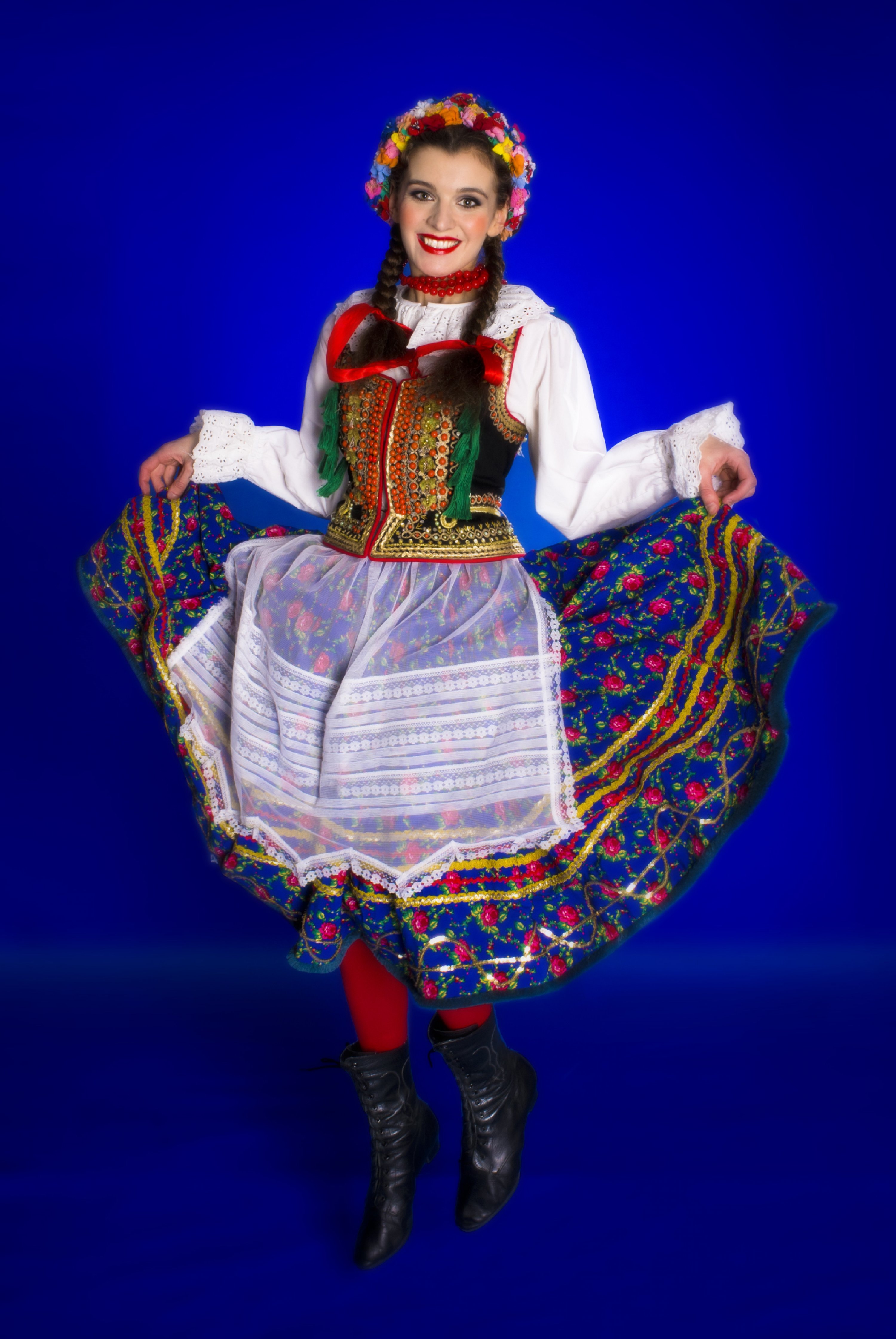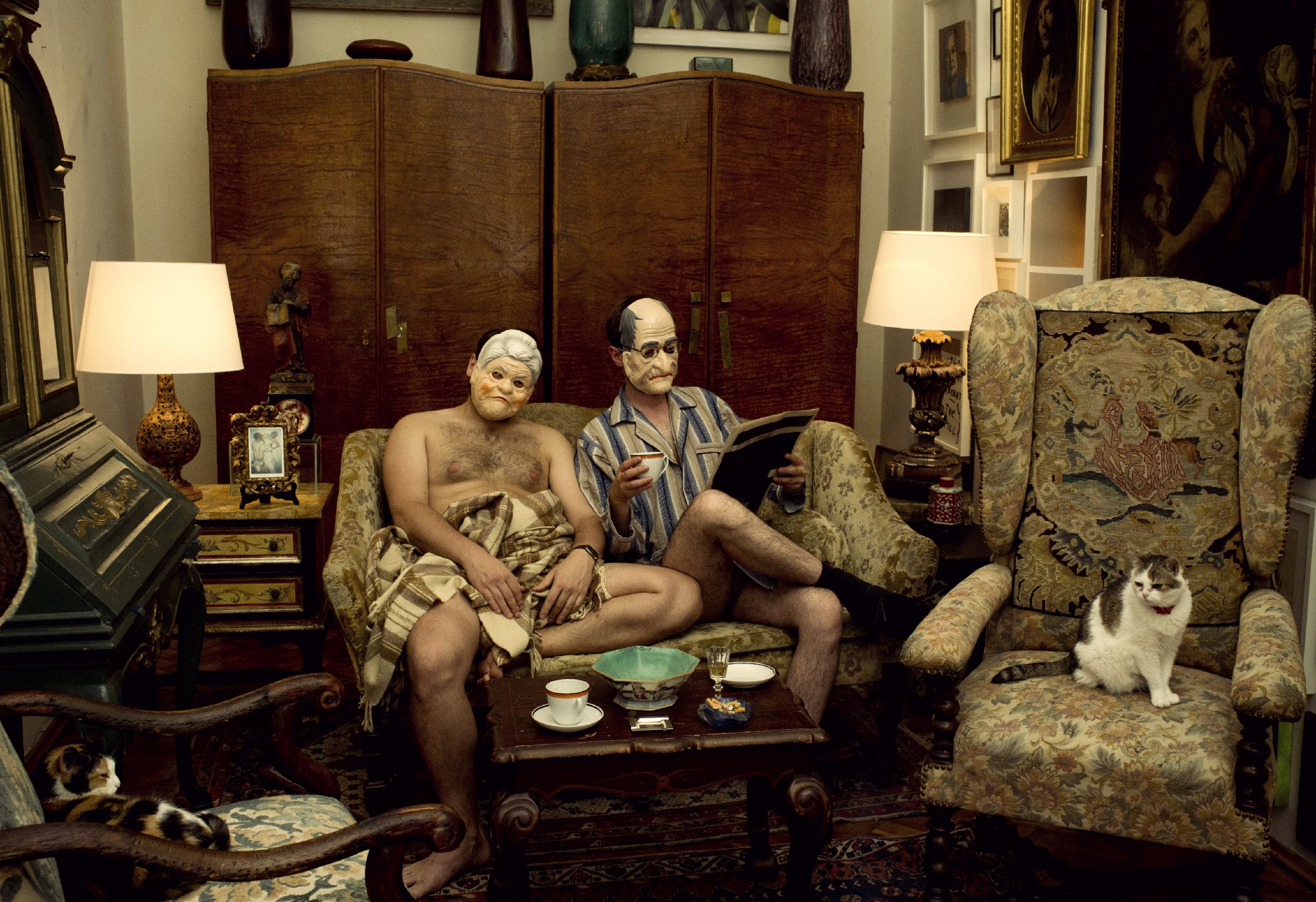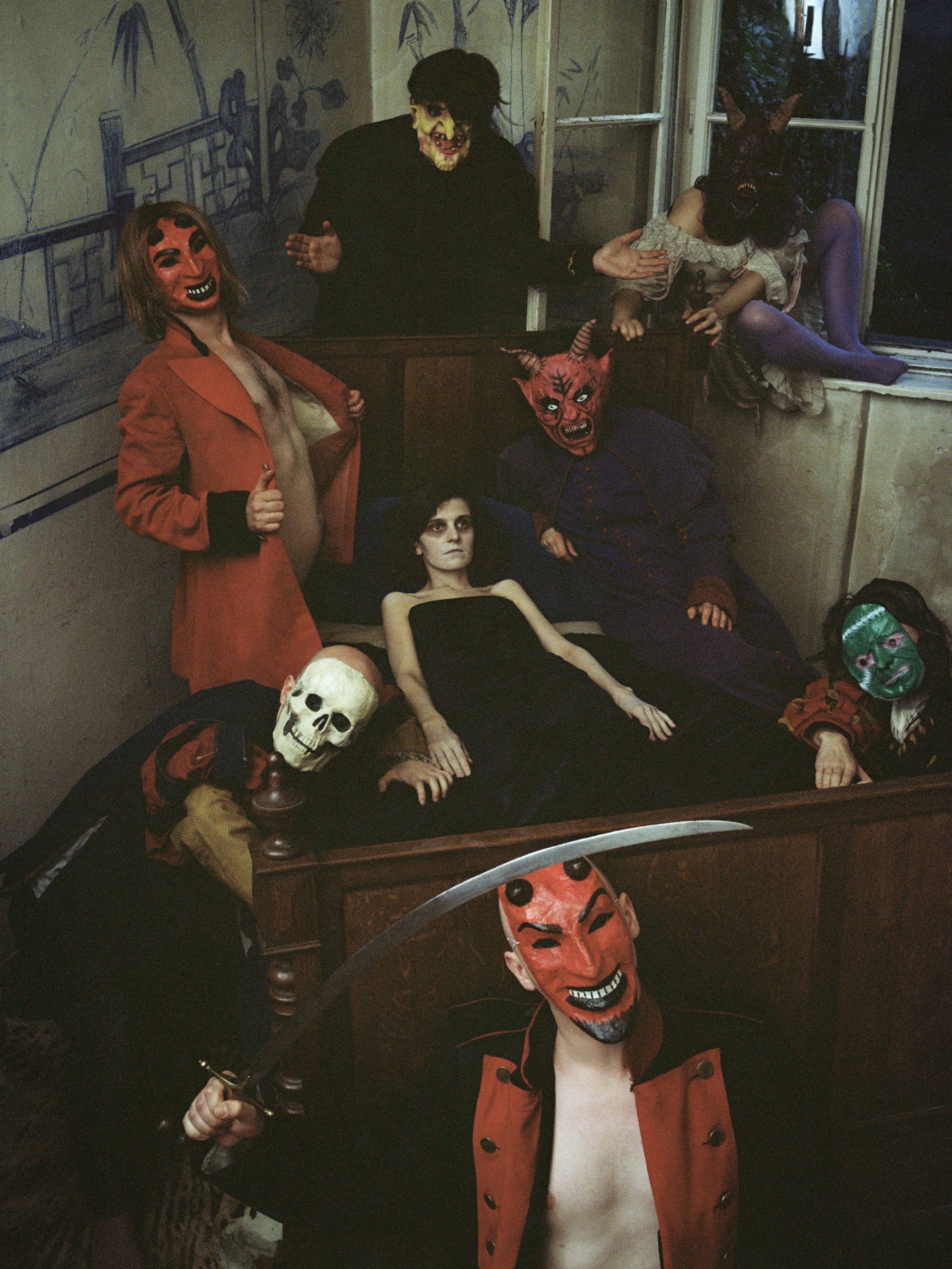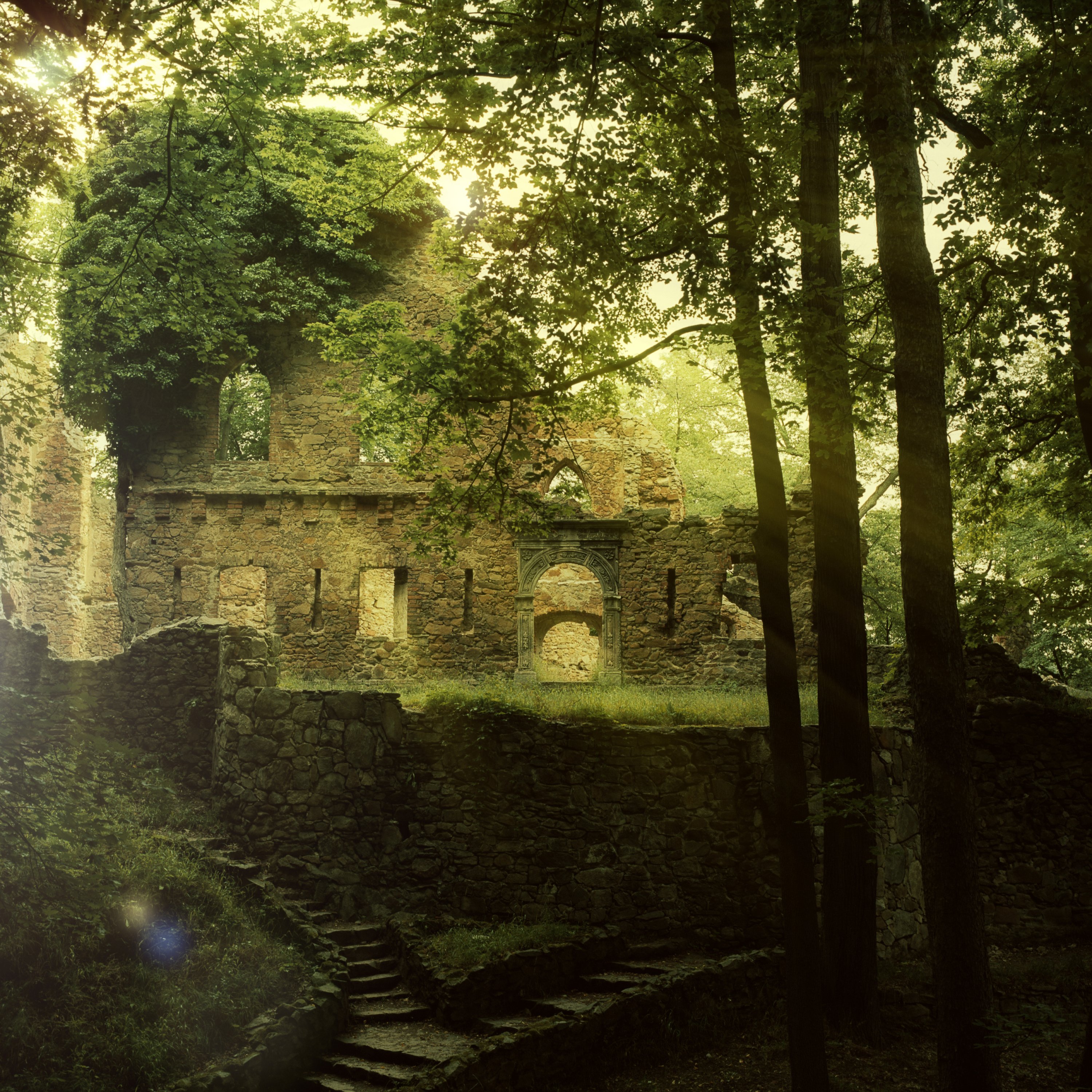Irena Kalicka
b. 1986, Krakow
Photographer, filmmaker, collage artist. Graduate of the Faculty of Photography at the Łódź Film School. Kalicka often photographs improvised or staged situations, much like theatrical productions. She creates photographic tableaux vivants, presentations of canonical motifs from art history brought to life, in which the artist herself poses along with her friends. She alludes to literary and anthropological texts in her works, which also include numerous symbols, self-quotations, and mythological, religious and pop-culture references. She eagerly mixes orders and registers, incorporating kitsch and the aesthetics of intentional error. She uses stylized form to raise contemporary themes associated with identity and its stereotypical perception. She lives and works in Kraków.
untitled from the series The horse you see is the horse you get (New Athens)
FSP ING 0196
New Athens (1745) by the priest Benedykt Chmielowski, which inspired Kalicka’s photography cycle, is the apotheosis of Polishness. Chmielowski’s patriotism shades into chauvinism, as in the pages of New Athens the splendour of the author’s homeland is contrasted with the barbarism of other nations or entire continents. Chmielowski was also a local patriot, referring to his small native country as “Kraków, known as the second Rome.” Kalicka’s self-portrait in the folk costume of a Kraków woman is the most stereotypical “postcard from Kraków.” The plastic figure of a Kraków woman, seemingly from a Cepelia arts and crafts shop, looks as if she had leapt in a folk dance straight out of an ad for sausages. The subject is herself photographed like a product, in artificial light against a garish background. Kalicka captures the essence of the cheesy, saccharine version of Poland, a contemporary version of the image created by Chmielowski, idealized to the level of impossibility.
untitled from the series It’s hard to slay the dragon, but you must try (New Athens)
FSP ING 0197
This is the stereotypical Kraków flat, suffused with the stuffy air of prudery, crammed with bulky furniture and countless knickknacks. Among them is a work from Phototheatre, one of Kalicka’s first photographic series, on a chest of drawers. A grotesque pair of “old folks” sip coffee in the bourgeois parlour. This is one of the eclectic scenes staged by Kalicka, in which the artist plays out the timeless human tendency toward folklore and demonization of unfamiliar or misunderstood phenomena. The work is part of the series of photographs inspired by New Athens by the priest Benedykt Chmielowski, intended as the first Polish general encyclopaedia but soon regarded as a manifestation of the Polish obscurantism of the Saxon era. Kalicka points out that today’s media topics and the methods of presenting them often parallel Chmielowski’s entries, which even upon publication of New Athens (1745) were regarded as obsolete compared to the Enlightenment thought then current elsewhere in Europe. But Kalicka’s aim is not to ridicule or scorn Chmielowski. She is intrigued by how his depictions, stereotypes and beliefs about the world linger in the contemporary mentality, media message, and political narrative.
untitled from the series It’s hard to slay the dragon, but you must try (New Athens)
FSP ING 0198
In the photography series A Dragon Is Hard to Overcome, But One Must Try (New Athens), Irena Kalicka alludes to the vision of the world presented in New Athens (1745) by the priest Benedykt Chmielowski. This book, published at the threshold of the Enlightenment, is regarded as the first Polish general encyclopaedia. Intended as a scientific text, its overtones are more mediaeval. Its pages feature demons, witches, zombies and sphinxes, alongside monarchs and historical figures. This photograph, in which the artist herself poses on the deathbed surrounded by devils and sorceresses, is a commentary on Chmielowski’s entire encyclopaedia. Kalicka reconstructs ars moriendi, the art of dying, a popular motif in the Middle Ages. Forces of good and evil, in the form of angels and devils, approach the deathbed to fight over the soul of the departed, for its salvation or damnation. In the mediaeval view, a good death could redeem a bad life. In Kalicka’s depiction, this psychomachia is comic and is used to expose the internal inconsistency of the encyclopaedia, which turns out to be a fable. In the artist’s view, this is the very charm of New Athens, but it’s a controversial charm, aimed more at generating morbid sensation than conveying knowledge.
untitled from the series It’s hard to slay the dragon, but you must try (New Athens)
FSP ING 0199
The remnants of the Old Książ Castle in Wałbrzych, photographed by Kalicka, were rebuilt in the 18th century into Romantic ruins. This was a practice in the Romantic era of building stylized artificial ruins, where lovers might stroll in the moonlight. For the artist, this phenomenon has a metaphorical dimension of building foundations on ashes and makes a symbolic allusion to New Athens (1745) by the priest Benedykt Chmielowski, which is the point of departure for her photographic cycle with the same title. In Chmielowski’s encyclopaedia one lie follows another, and truth cannot be definitively separated from fiction. Nowadays, the fake ruins of the Old Książ Castle, subjected to the destructive influence of time for several intervening centuries, have once again turned into “real” ruins. Kalicka also manipulates the truth by subjecting the photograph to digital intervention: the artificial gleam and romantic luminescence were superimposed on the picture using graphics software.



